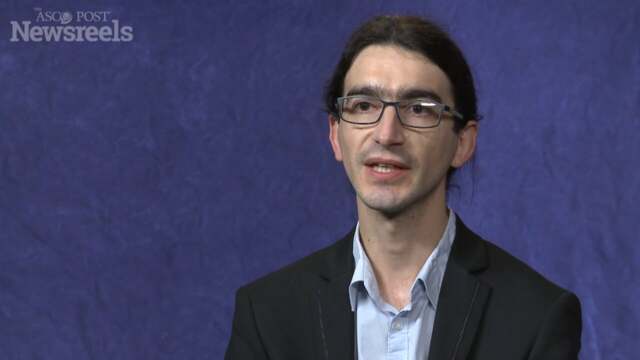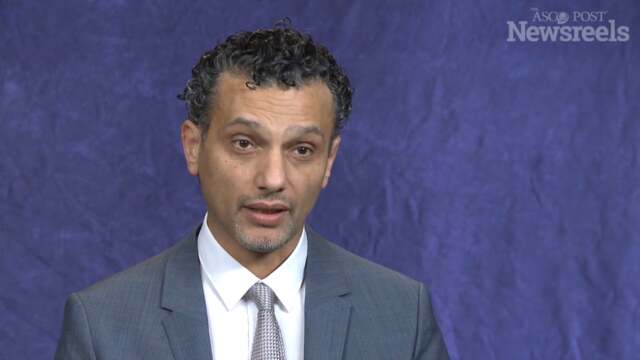Karyn A. Goodman, MD, on Esophageal Cancer: Results of CALGB 80803
2017 Gastrointestinal Cancers Symposium
Karyn A. Goodman, MD, of the University of Colorado School of Medicine, discusses initial study findings on PET scan–directed combined-modality therapy for esophageal cancer (Abstract 1).
Ignacio Melero, MD, PhD, of the University Clinic of Navarra, Centre of Applied Medical Research, discusses study findings on nivolumab dose escalation and expansion in patients with advanced hepatocellular carcinoma (Abstract 226).
Julien Edeline, MD, of the Centre Eugène Marquis, discusses in French study findings on gemcitabine and oxaliplatin vs surveillance following surgery for localized biliary tract cancer (Abstract 225).
Salah-Eddin Al-Batran, MD, of the Institute of Clinical Cancer Research and Nordwest Hospital, discusses study findings on paclitaxel with and without RAD001 in patients with gastric cancer whose disease has progressed after therapy with a fluoropyrimidine/platinum-containing regimen (Abstract 4).
Mark Talamonti, MD, of NorthShore University Health System, discusses the technical prerequisites for minimally invasive surgery in pancreatic cancers and the potential benefits to patients.
Sarah E. Hoffe, MD, of the Moffitt Cancer Center, discusses the controversial role of radiation in the treatment of pancreatic cancer, recent advances in delivering short courses of high-dose stereotactic body radiation therapy, and how best to integrate this new modality in borderline and locally advanced disease.





